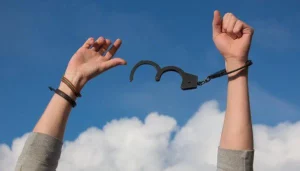Michigan Drug Crime Defense Attorneys
There are many different types of drugs produced, sold, and consumed by people in Michigan. The law reflects this variety by having many different specific felonies and misdemeanors that address the different types and quantities of drugs, and deal directly with whether they are being produced, distributed or used.
The following is a comprehensive, but not exhaustive, list of links to information about different charges and penalties pertaining to drug crimes in Michigan:
Analogue Drugs
Analogue drugs are also known as “designer drugs.” They were initially created to mimic the high a user could get from a more commonly used illegal drug like heroin or cocaine, but avoid the associated criminal charges. However, in addition to being dangerous and sometimes deadly, analogue drugs are now illegal both federally and on a state level. Read more here: Analogue Drugs
Anabolic Steroids
The term “steroids” refers to Anabolic-Androgen Steroids (AAS), a synthetic drug that mimics the effects of testosterone in the human body. It affects the development of skeletal muscle, which has led to widespread abuse among bodybuilders and weightlifters. It is now banned in almost all competitive sports around the world, and it’s use is illegal under both federal and state law. Read more here: Anabolic Steroids
Cocaine
Cocaine is a schedule 2 stimulant drug that can result in very serious felony charges and prison time for those convicted of possessing, selling, or making it in Michigan. Cocaine is usually available in two forms – the variety that is either snorted or dissolved in water and injected. The second variety is commonly smoked, called “freebasing.” Crack cocaine, a cheaper derivative of cocaine, is equally dangerous and illegal. Read more here: Cocaine
Date Rape Drugs
Date rape drugs refers to a group of synthetic substances that are commonly used to incapacitate a person, usually for the purposes of non-consensual sexual contact. Included in this list is GHB, GBL and “Roofies.” Under Michigan law it is illegal to use drugs to render another person powerless, and doing so will lead to felony charges. Anyone who also has non-consensual sexual contact with a drugged person will face criminal sexual conduct charges in addition to drug charges. Read more here: Date Rape Drugs
Drug Charges
If you have been accused of a drug related crime in Michigan, whether it is for illegal drugs or prescription drugs, “designer” drugs or “street” drugs, you are going to need an excellent defense attorney. Whether you are facing federal charges, or charges in a Michigan court, we can help you. Call us today for a free consultation. Read more here: Drug Charges
Drug Sentencing
While very few drugs will get you a life sentence here in Michigan, sentences for many drug crimes are very serious and can result in years behind bars in a state or federal penitentiary. If you have been accused of a drug related crime in Michigan, you need an attorney who is skilled at drug crime defenses. You need The Kronzek Firm. Read more here: Drug Sentencing
Ecstasy
Ecstasy is one of the most popular drugs here in the U.S. Commonly called “Molly”, “MDMA”, or simply “X,” it is a well-known party drug, sold and consumed at dance clubs, raves, and parties. This designer drug is a constantly changing chemical formula that causes euphoria, increased energy, and elevated sexual arousal. Read more here: Ecstasy
Ephedra
Ephedra, a plant also known as “Ma Huang” in parts of Asia where it originated, has been used for thousands of years as part of traditional Chinese medicine to treat asthma, bronchitis, and hay fever. However, due to serious misuse in the West as a weight loss drug, ephedra is now illegal. Ephedrine, one of the active compounds in Ephedra, is treated exactly the same way under state law, and can also result in very serious drug penalties. Read more here: Ephedra
Heroin
Heroin, also known as “smack”, “mud”, “dragon”, “big H” and “dope,” is a schedule 1 drug that can result in very serious prison time for those convicted of using, producing, or selling it in Michigan. A derivative of morphine, heroin is highly addictive and also can be deadly if consumed over long periods of time or in large quantities. Read more here: Heroin
Marijuana
Marijuana, the most widely used drug in the world, is illegal under both federal and state law. Although small quantities have been legalized for personal use in certain cities around Michigan, it is a schedule 1 drug and can result in very serious charges for those caught growing or selling it. This includes the use of derivative substances like “cannabutter”, cannabis oils, and “medibles.” Read more here: Marijuana
Medical Marijuana
Medical marijuana, while still illegal under federal law, is legal under state law in Michigan. There are, however, very specific regulations that licensed medical marihuana growers must abide by when producing and selling their product here in Michigan. Failure to adhere to state regulations can result in very serious felony charges. Read more here: Medical Marijuana
Methamphetamines
The production, sale and consumption of meth is considered to be a serious and growing problem here in Michigan. Commonly called “crystal meth”, “ice”, “crank”, and “chalk,” among other things, this schedule 2 drug is illegal in Michigan, and can result in very serious charges and long prison terms. People accused of meth-related crimes will need an attorney with significant experience defending against drug charges of this magnitude. Read more here: Methamphetamines
Other Drug Crimes
Under Michigan law there are several charges that do not pertain directly to a specific drug or it’s production, sale, and use. Charges like maintaining a drug house, manufacturing or producing a prescription form when you are not a medical doctor, and obtaining a controlled substance by fraud are all examples of this. If you are facing any type of drug related charge you will need help from an excellent attorney with experience in defending drug related crimes. Read more here: Other Drug Crimes
Oxycontin
Oxycontin is a prescription opioid pain medication similar in strength to morphine. It is usually prescribed by doctors to treat patients with long-duration pain, but is widely abused for recreational purposes. Use by anyone without a valid prescription is illegal both under state and federal law, and can result in a very serious prison sentence. Read more here: Oxycontin
Prescription Drugs
Prescription drug crimes refer to the illegal sale, procurement, or consumption of drugs that are legally only available when prescribed by a doctor. This usually includes strong pain medications like Oxycontin, Vicodin, Fentanyl, and anti-anxiety medications like Ativan and Valium. Michigan law states that these drugs may only be taken by people with legally acquired prescriptions, which means harsh sentences for those who abuse these drugs recreationally. Read more here: Prescription Drug Abuse
Vicodin
Vicodin is a prescription pain medication that contains a combination of acetaminophen and hydrocodone, a potent opioid used for treating moderate to severe pain. Under Michigan law, possessing, selling, and consuming Vicodin is against the law. Those convicted of illegal Vicodin possession, distribution, and consumption are likely to face serious prison time. Read more here: Vicodin
Drug Crime Schedules
Drug crimes involve violations of federal and/or state law. Under the federal Controlled Substances Act, controlled substances are classified into five categories (Schedules I to V), based on their abuse and addiction potential (weighed against their medicinal value). The most severe penalties involve drugs listed in Schedule I, with the least severe involving Schedule V. Most states, including Michigan under our Public Health Code of 1978, have drug laws that resemble the Controlled Substances Act.
What is a Schedule 1 Drug?
By definition, Schedule I drugs have a high potential for abuse and no accepted medical use. These drugs include heroin, LSD, and several other hallucinogenic substances.
What is a Schedule 2 Drug?
Schedule II drugs have a high potential for abuse and severe dependence, but have a currently accepted (though very limited) medical use, and include PCP, cocaine, methadone, and methamphetamine.
What is a Schedule 3 Drug?
Schedule III drugs have less potential for abuse than Schedule II drugs, a potential for moderate dependency, and an accepted medical use. Typical Schedule III drugs include anabolic steroids and morphine.
What is a Schedule 4 Drug?
Schedule IV drugs have even less potential for abuse and dependency than Schedule III drugs, and are widely accepted in medical treatment. Schedule IV drugs include Xanax, Valium, and other tranquilizers and sedatives.
What is a Schedule 5 Drug?
Schedule V drugs have a low potential for abuse, limited risk for dependency, and widely accepted medical uses. These include drugs like cough medicines with codeine. However, these drugs cannot be legally purchased in bulk.
What Kind of Drug Charges Could I be Facing?
A defendant may be accused of or face charges like possession, cultivation, manufacture, delivery, trafficking, or use of drugs. The possible penalties of these offenses vary depending on the type of drug involved. Possession of drug paraphernalia or narcotic paraphernalia is usually illegal under local ordinances. Drug or narcotic paraphernalia includes any device used for the manufacture, storage, or use of a controlled substance. This can include pipes and even cigarette rolling papers.
If You Need a Michigan Drug Crime Lawyer
Drug charges have severe consequences, including significant fines, forfeiture of property, and incarceration. As with many other serious crimes, if you are under investigation or arrest on a Michigan or federal drug charge, do NOT volunteer any information to the police other than your identifying information (name, address, and phone number). Tell the police you wish to remain silent. Tell the police that do not want to talk to them without first consulting your attorney. Don’t give permission to search. Even if you are stopped in your car, and police officers find drugs or other drug paraphernalia in the vehicle, do not say anything about their findings. Never voluntarily consent to the cops searching you, your car, or your home. Remain polite, but insist on speaking to your attorney immediately. And, of course, never, ever resist arrest, obstruct a police officer or run from the police. Doing so can add additional charges and make your situation even more difficult.
Our Approach to Drug Crime Defense
Defense to a drug charge frequently centers on whether or not law enforcement officials properly gathered the evidence they plan to use in prosecuting the case against you. Evidence obtained by law enforcement in violation of your constitutional rights, no matter how persuasive, is usually not admissible in court. If such evidence is found to be inadmissible, often your case will be dismissed or will result in a very favorable plea bargain. Most challenges to the admissibility of criminal evidence are based on the Fourth Amendment, which protects citizens from unreasonable searches and seizures. For example, sometimes search warrants are not properly obtained (or perhaps not obtained at all), or sometimes probable cause does not exist to support a search. In addition, Michigan law enforcement agencies often recruit a confidential informant (CI) to make a “controlled buy” of drugs from a suspect.
State regulations require that the police follow a specific protocol for such controlled buys or stings. If such a protocol is not followed, your case might be too weak to prosecute successfully. There might also be the possibility of an entrapment defense if it can be shown that the police (or their agents) enticed you into committing an act that you would not otherwise have engaged in. The bottom line is that the Michigan drug attorneys at The Kronzek Firm thoroughly pursue all avenues of defense. We are an experienced and aggressive team of drug crime defense attorneys. In fact, the drug attorneys at The Kronzek Firm were listed as referral attorneys by NORML, an organization that works toward reform of marijuana laws. We will fight vigorously and persistently to protect your rights and reputation. We have handled hundreds of drug cases successfully throughout the state of Michigan. Our case results have been published in Michigan and nationally. We fight to win.
Does it matter where I was arrested?
Yes! Being arrested on a Lansing Marijuana Drug Charge is much different than being arrested for an Ann Arbor Marijuana drug charge or a Detroit drug charge. For example, Lansing as a city has passed legislation that limits the fine amount for a third marijuana drug arrest, while Grand Rapids and Detroit have not passed similar laws. The city you were arrested in matters a lot. You need an aggressive attorney who knows how each city imposes fines and penalties for violating their laws. Contact us about your legal matter today!
Call us at 1-866-766-5245
People who read this page also read:
More information on drug charges
- Can The Police Search My Car If They Smell Marijuana?This question is an important one because a search conducted without sufficient probable cause for a search warrant may be a violation of the Fourth Amendment of the Constitution. Previously, the smell of marijuana was an indicator of illegal activity. With weed now being legal for recreational use, the waters are murky. Background: The Automobile… Read more: Can The Police Search My Car If They Smell Marijuana?
- Are ‘Designer Drugs’ Still a Thing in Michigan? Oh Yes, They Are!If the term ‘designer drugs‘ isn’t one you’re familiar with, consider yourself lucky. Although perhaps we should take a moment to explain, since the word ‘designer’ can be a bit misleading in this case. While a designer purse or dress or perfume implies something finely crafted by someone whose creativity is celebrated in their industry,… Read more: Are ‘Designer Drugs’ Still a Thing in Michigan? Oh Yes, They Are!
- A New Michigan Law Will Require Warning Labels on Recreational Marijuana!One of the biggest subjects of concern for some people here in Michigan, when recreational marijuana became legal was that people would use it without thinking of the unintended consequences it may have for children. Specifically, if pregnant and nursing mothers used marijuana and it affected their babies, and parents of young children used it… Read more: A New Michigan Law Will Require Warning Labels on Recreational Marijuana!
- DID YOU DROP DIRTY? Your Drug Test Can’t Tell The Difference Between CBD and THC! (Pt 2)Hi there and welcome back! We’ve been talking about the difference between CBD and TCH, and the fact that many drug tests can’t tell the difference. In the previous article we broke down the different ways that the two compounds affect the human brain and body, and how this affects the ways in which they… Read more: DID YOU DROP DIRTY? Your Drug Test Can’t Tell The Difference Between CBD and THC! (Pt 2)
- DID YOU DROP DIRTY? Your Drug Test Can’t Tell The Difference between CBD and THC! (Pt 1)A recent article in the New York Times brought home a very real issue that we here in Michigan are on the cusp of dealing with – the fact that drug tests often can’t tell the difference between CBD and THC. Not sure what the differences are yourself? Let’s take a quick look at what… Read more: DID YOU DROP DIRTY? Your Drug Test Can’t Tell The Difference between CBD and THC! (Pt 1)
- Does Michigan Have More “Opioid Pusher” Doctors Than Any Other State?The issue of the opioid crisis is a topic that’s been making headlines in recent years. People are realizing the extent of the addiction level in the U.S. to prescription medications. A number of efforts have been made, both on a national level and here in Michigan, to make it harder for people to get… Read more: Does Michigan Have More “Opioid Pusher” Doctors Than Any Other State?







